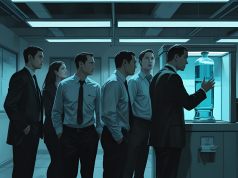As we stand at the intersection of unprecedented global changes and technological advancements, the role of a leader takes on a new level of complexity. Gone are the days of clear-cut choices and predictable paths to success. Instead, leaders grapple with the ‘invisible chessboard,’ an ever-shifting landscape of unseen forces and factors that shape the outcome of every strategic decision they make.
The invisible chessboard is not a physical entity but a metaphor for the intangible elements that influence the direction of an organization. These elements include socio-political currents, economic fluctuations, technological disruptions, and ecological shifts, all of which are often beyond direct control or immediate comprehension. The challenge for leaders is not just to acknowledge these hidden dynamics but to navigate them skillfully.
Cognitive biases are among the first pitfalls on this chessboard. Confirmation bias, overconfidence, and sunk cost fallacy can lead even the most astute leader astray. It’s crucial to foster a culture of critical thinking and diversity of thought, where challenging established norms and seeking alternative perspectives is the norm. Leaders need to understand that cognitive biases are not flaws to be ashamed of but natural tendencies to be managed.
Embracing uncertainty is another critical skill for modern leaders. Rather than seeing it as a barrier to progress, uncertainty should be viewed as a tool for fostering innovation and adaptability. Scenario planning and probabilistic forecasting are not just exercises in imagination but essential strategies for preparing organizations to pivot and persevere through unexpected challenges.
Creating a culture of resilience and agility is imperative. This requires developing systems and processes that are robust yet flexible, empowering employees, and encouraging a mindset of continuous learning and improvement. It’s about building an organization that is prepared to absorb shocks, recover, and even thrive amidst adversity.
Leaders Club recognizes the importance of learning from the past to prepare for the future. By examining historical cases of strategic triumphs and failures, we can extract valuable lessons about decision-making under pressure. These historical parallels serve as guideposts, illuminating the likely consequences of our choices and informing strategies that avoid past mistakes while capitalizing on proven successes.
We invite our informed readers – executives, industry experts, and strategy enthusiasts – to engage with the concept of the invisible chessboard. How can you apply multidisciplinary thinking to your strategic decisions? What can history teach us about steering through an era of dizzying complexity? Join us as we unravel the art and science of high-stakes decision-making, and help plot a course through an uncertain yet opportunity-rich future.
The invisible chessboard may be daunting, but it is not impervious to insight. With the right mindset and tools, leaders can not only decipher the moves that will lead to success but also shape the game itself. It’s time to think several moves ahead. Welcome to Leaders Club, where we transform the unseen into the seen, and uncertainty into strategic foresight.




























